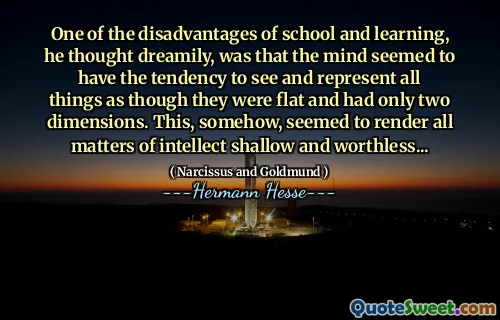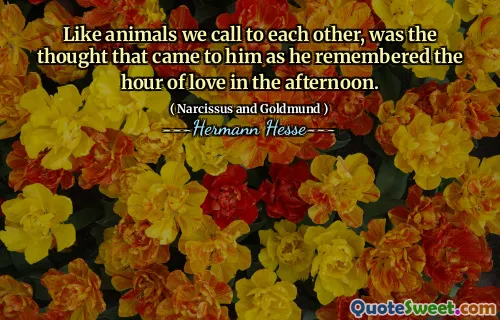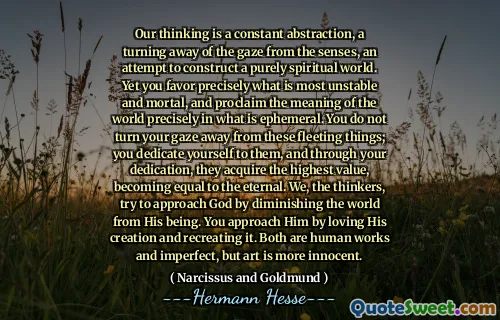
Narziss was dark and thin of face, and Goldmund open and radiant as a flower. Narziss was a thinker and anatomiser, Goldmund a dreamer and a child. Yet things common to both could bridge these differences. Both were knightly and delicate; both set apart by visible signs from their fellows, since both had received the particular admonishment of fate.
This excerpt vividly contrasts two characters—Narziss and Goldmund—embodying opposing but interconnected aspects of human nature. Narziss's description as dark, thin, and analytically inclined suggests a personality rooted in introspection, logic, and perhaps a more reserved or cautious approach to life. In contrast, Goldmund’s radiant and open demeanor signifies a spontaneous, expressive, and imaginative spirit. Despite their differences, the author emphasizes a fundamental connectedness through shared qualities such as knightly delicacy and a sense of being set apart by fate. These distinctions and similarities invite reflection on the duality inherent in human existence—the tension between reason and emotion, intellect and passion, logic and creativity. Both characters are marked by visible signs of their uniqueness, implying societal perceptions and judgments. Yet, their common 'admonishment of fate' suggests that life's circumstances, destiny, or a shared innate strength forge a link between disparate individuals, urging us to recognize that seemingly opposite traits can coexist and complement each other. This dichotomy exemplifies the broader human experience: the constant interplay between different facets of ourselves that, when understood, can lead to a more holistic self-awareness. Acknowledging both perspectives—reflection and imagination—enables a deeper appreciation of the multifaceted nature of identity. It reminds us that diversity in temperament or outlook is not divisive but enriches the human condition, fostering empathy and understanding among individuals who differ in their expressions but share fundamental human bonds.










